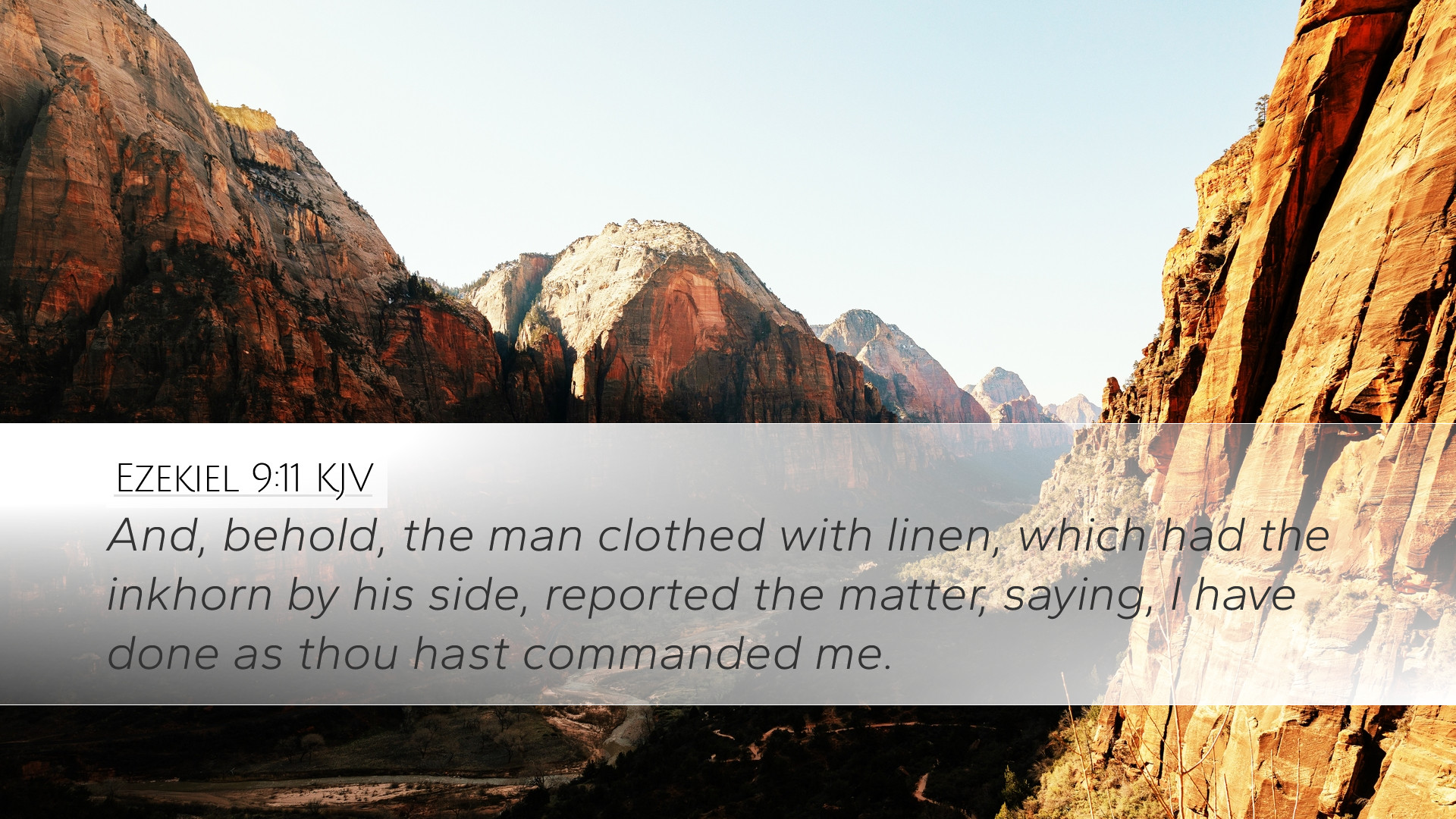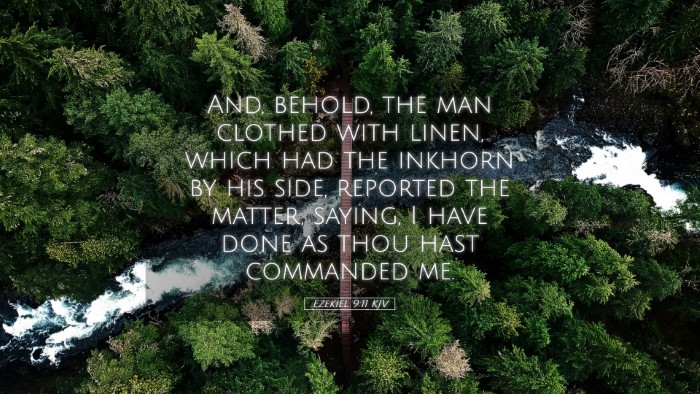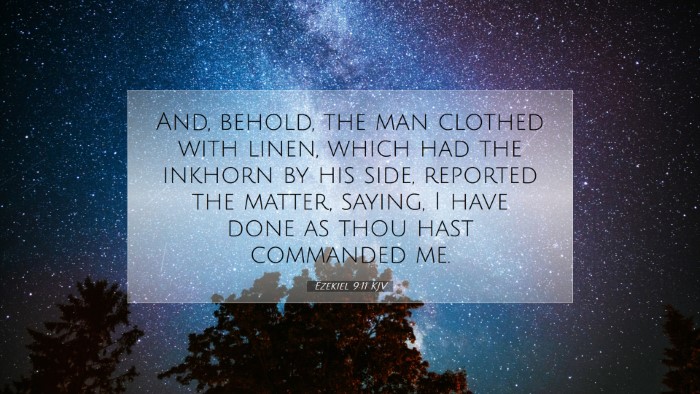Ezekiel 9:11 Commentary
The verse Ezekiel 9:11 states: "And, behold, the man clothed in linen, which had the inkhorn by his side, returned and brought word, saying, I have done as thou hast commanded me." This verse concludes a significant vision wherein a divine command is given for the judgment of Jerusalem.
Context and Overview
Ezekiel's prophetic ministry takes place during a tumultuous time in Israel's history, marked by the impending doom of Jerusalem due to idolatry and moral failure. The imagery presented in the chapter is vivid and presents a stark warning about divine judgment.
Significance of the Man in Linen
The man in linen represents a figure of righteousness, often interpreted as an angelic being tasked with executing God's judgment or possibly signifying Christ as the mediator of divine justice.
- Divine Commission: This man is commanded to mark the foreheads of the faithful, signaling God's protection amidst impending judgment. The act of marking signifies distinction between those who fear God and those who do not.
- Symbol of Preservation: The act of marking, as highlighted by Matthew Henry, indicates a preservation of the righteous, emphasizing that God's mercy coexists with His justice.
The Inkhorn and Its Implication
The inkhorn is a critical emblem in this passage, representing the tools of divine judgment and the authority of God to command actions upon the earth.
- Authority to Judge: The inkhorn signifies the authority given to the man in linen, reflecting the seriousness of the commission he receives from the Lord.
- Completion of a Command: Albert Barnes emphasizes the importance of obedience in spiritual matters, illustrating that the completion of the directive given to the man in linen confirms God's sovereign orchestration of events.
Theological Implications
The overarching theme of this verse aligns with the essential doctrines of God's sovereignty and judgment. It serves as a reminder to believers about the dichotomy of judgment and mercy that characterizes biblical theology.
God’s Judgment
The prophecy illustrates a profound truth about God's justice. Adam Clarke points out that this judgment is not arbitrary but comes after persistence in sin by the people of Israel. The method of marking the righteous juxtaposes the fate of the wicked, a duality repeatedly portrayed in scripture.
God’s Mercy
The marking of the faithful serves as a poignant reminder of God's mercy amidst wrath. Those who bear the mark signify covenant faithfulness and protection, aligning with New Testament themes of being sealed by the Holy Spirit.
Application for Today
Reflecting on Ezekiel 9:11, contemporary readers are encouraged to consider their standing before God. Are they marked as His faithful servants?
- Self-Examination: This verse invites believers to engage in introspection regarding their spiritual lives to ensure they are aligned with God's will.
- Call to Faithfulness: Just as the man in linen marked the righteous, Christians are called to live in a way that reflects their faith and trust in God’s promises.
Conclusion
Ezekiel 9:11 provides profound insights into the nature of divine judgment and mercy. The culmination of the prophecy emphasizes the faithfulness of God in preserving a remnant, teaching essential truths about righteousness, judgment, and the character of the God who executes justice. Pastors, students, and scholars alike are urged to reflect deeply on these themes, ensuring that they live under the guidance of the Spirit, marked as faithful servants in a world often steeped in unfaithfulness.


